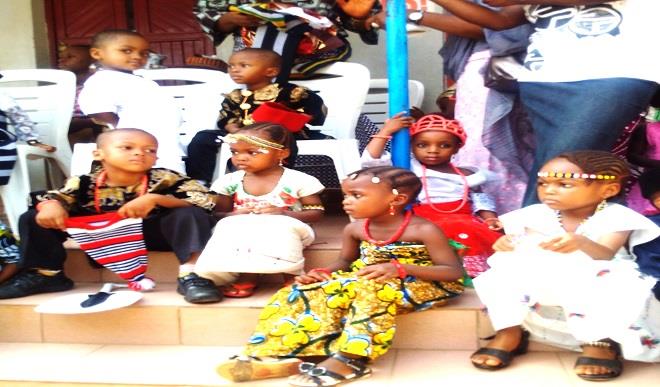Celebrating Nigeria’s diverse cultures in schools
Culture, they say is the total way of life of a particular people living in a particular place. Nigeria’s culture is as multi-ethnic as the people therein but as ‘multi’ as it may be, each has unique characteristics. There are over 500 ethnic groups in Nigeria with the three largest being Hausa, Yoruba and Igbo. […]


Culture, they say is the total way of life of a particular people living in a particular place.
Nigeria’s culture is as multi-ethnic as the people therein but as ‘multi’ as it may be, each has unique characteristics. There are over 500 ethnic groups in Nigeria with the three largest being Hausa, Yoruba and Igbo.
In the past, much importance was attached to activities like cultural dances where school children are taught to showcase the dressing, songs and dance steps of different tribes, especially the three major ones; Hausa/Fulani, Yoruba and Igbo. Students at that time were looked forward to rehearsals and presentation days, which usually held towards the end of third term, when graduating students are expected to be bidding farewell to the school while the continuing students would be moving from one class to another.
However, the negative impact of westernisation has spread its tentacles to every area of the Nigerian state, thus influencing and changing the culture of many tribes and ethnic groups in the country.
To bring to fore some of these cultures in a bid to preserve them, some schools are beginning to re-awaken the dying trend. Turaki International School Kaduna recently organized what it called ‘Cultural Fiesta’ for its students. This event is the first of its kind since the school was established in 1983.
Students of the school were made to represent different tribes and ethnic groups through their dressing, making the event a very colorful one. Excitement was seen on the faces of the students as they were adorned in clothes and accessories different from the ones they are used to.
Maryam Abdulkareem, a primary six pupil of the school, hails from Cross-River but was made to dress in Edo attire. She said the fiesta has exposed her to many other ethnic groups like Igala, Tiv, Yoruba, Igbo, and Hausa among others.
“I find myself looking gorgeous and comfortable in the Edo attire even though I am not from there,” she said.
Hasna Idris is a primary five pupil from Kajuru but dressed in Yoruba attire. She also stated that her experience of the fiesta has made her to admire other culture.
Adamu Umar Sambo, a Fulani who also dressed in Fulani attire, described all cultures as unique; saying it is fun and enjoyable learning other peoples’ way of life. “It will go a long way to improve our relationship with people because every culture is unique in its own way,” he said.
Parents were also not left out in the fiesta as they were asked to prepare and come along with their traditional meals so that the children can get conversant with foods eaten by different tribes.
They were also advised to help preserve Nigeria’s cultures by exposing their children to cultural norms and values as well as speaking their languages to them, so that the various languages will not go into extinction. “Teach your children about your culture, tell them the name of the town and village they come from and also teach them to respect other peoples’ culture because every culture is unique,” the school urged.
In the same vein, the head teacher of the school, Mr. Kyei Samuel, said that allowing children to showcase the diverse cultures that exist in Nigeria shows that some Nigerians still cherish their traditional languages, music, way of dressing, dance and food among others.
According to him, culture is the characteristics and knowledge of a particular group of people defined by everything from language, religion, cuisine, social habit to music and arts. He therefore urged parents to help preserve the Nigeria cultures.
